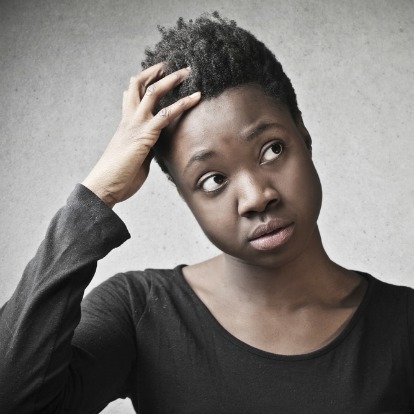Overarching statements are damning.
They create a certain expectation and/or reinforce stereotypes. But at the root of every overarching statement, there are truths.
While running errands in the Ft. Greene neighborhood of Brooklyn, I ran into an alumna of my alma mater. Naturally, having not seen her in over a year, casual greetings turned into an hour conversation about crazy Brooklyn real estate, new restaurants, old restaurants, homecoming and, of course, dating.
“Oh, I’ve completely stopped dating Black men,” she definitively said. “I’d be a masochist if I date another Black man. I wish I knew better a long time ago.”
After rolling my eyes one hard turn, I begged the question, “Why?”
“The last Black man I dated… we went out, thought we had a good time. Next day, he tells me he doesn’t feel comfortable dating me because my nose is too wide and my lips are too big.”
I was shocked.
From time to time you’ll hear how a man implied that he’s keen toward certain physical attributes not typical of descendants of west African women. And there’s the age-old, “You’re pretty, for a dark-skinned woman” back-handed compliment that’s been said one too many times. But in actuality, as a dark-skinned African woman, I had never heard these epithets to my face. Maybe I’m sheltered?
Researcher Robert L. Reece’s recent Vox study found that when Black people simply mentioned they were multiracial, they were rated as more attractive— even if they weren’t actually multiracial. “Race is more than we think it is,” Reece told the Duke Research Blog. “It’s more than physical characteristics and ancestry and social class. The idea that you’re a certain race shapes how people view you.”
Now let’s apply this to real life, specifically in large metropolitan cities, where many Black men are in interracial relationships. In 2013, a record-high 12% of newlyweds married someone of a different race, according to a Pew Research Center analysis of census data.
“Among Blacks, men are much more likely than women to marry someone of a different race. Fully a quarter of Black men who got married in 2013 married someone who was not Black. Only 12% of Black women married outside of their race.”
Applied to Hollywood, pick your Black leading man —outside of Denzel, Samuel, and Jesse— and you’ll find a white or racially ambiguous women. Then there’s the conscious types —Henry Louis Gates Jr., Touré, W. Kamau Bell, even Key & Peele— who are or were married to non-Black women.
The “phenomenon” has even found its way to Africa, where women from North and East Africa are regarded as beautiful and exotic; synonyms not as commonly used to describe women from other areas of the continent. So what is the point of all of this? Why do these numbers and notes matter?
Point is: there’s validity in Black women being concerned/perturbed/angry about their men abandoning them for women of other races. And yes, dark-skinned (non “multiracial”) women may legitimately have it harder. But instead of acknowledging these facts, Black women are constantly labeled as “jealous” for simply wanting to procreate with men who share their same features. Yes love is love. But that argument is trite for Black women waiting for their Black husband.
When I asked my 40-something friend if she thinks our men are marrying other races because we’re too hard on them, thinking the trend might stem from a non-physicality, she said in no uncertain terms,”No.”
“I think it’s because we’re too lenient. We fight for them, march for them, die for them. And they don’t do this for us. It’s not that we’re not giving them enough love, it’s that we’re giving them too much.”
So I pose these questions to you: What’s the solution for Black women? Does the race or pigment of a man’s wife say something about his character? And if so, what?










